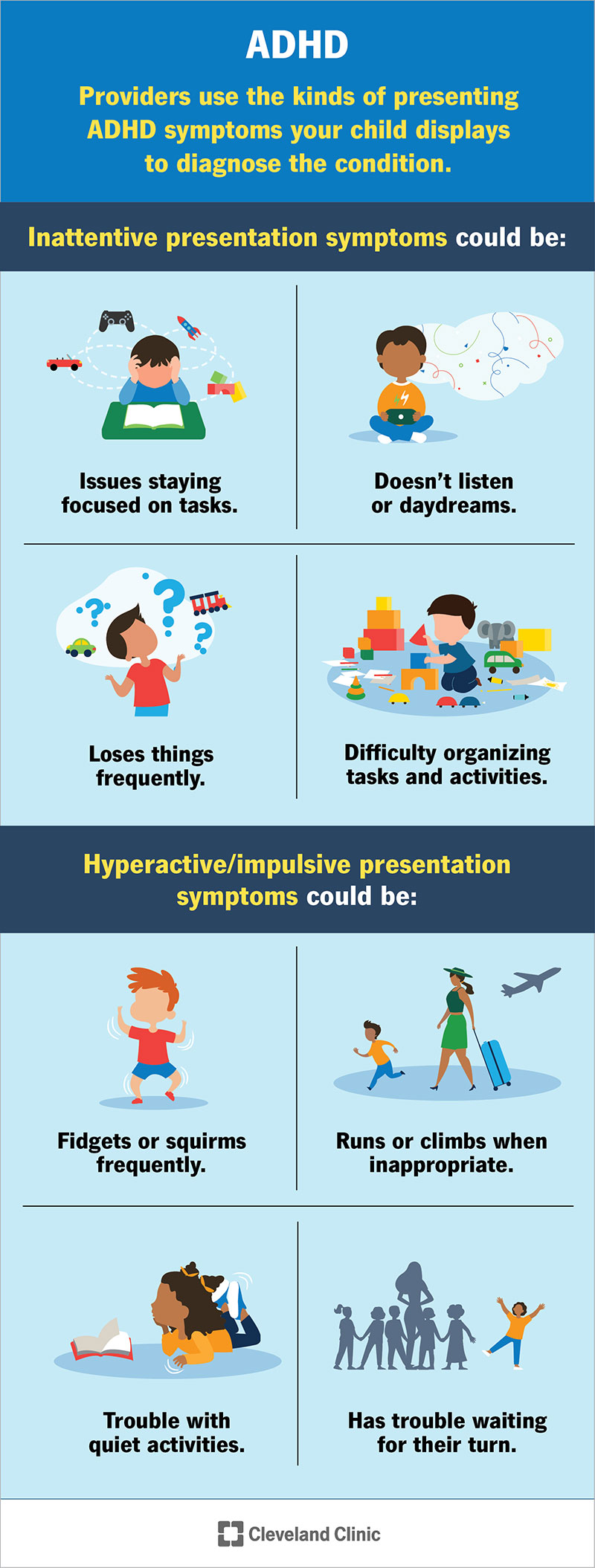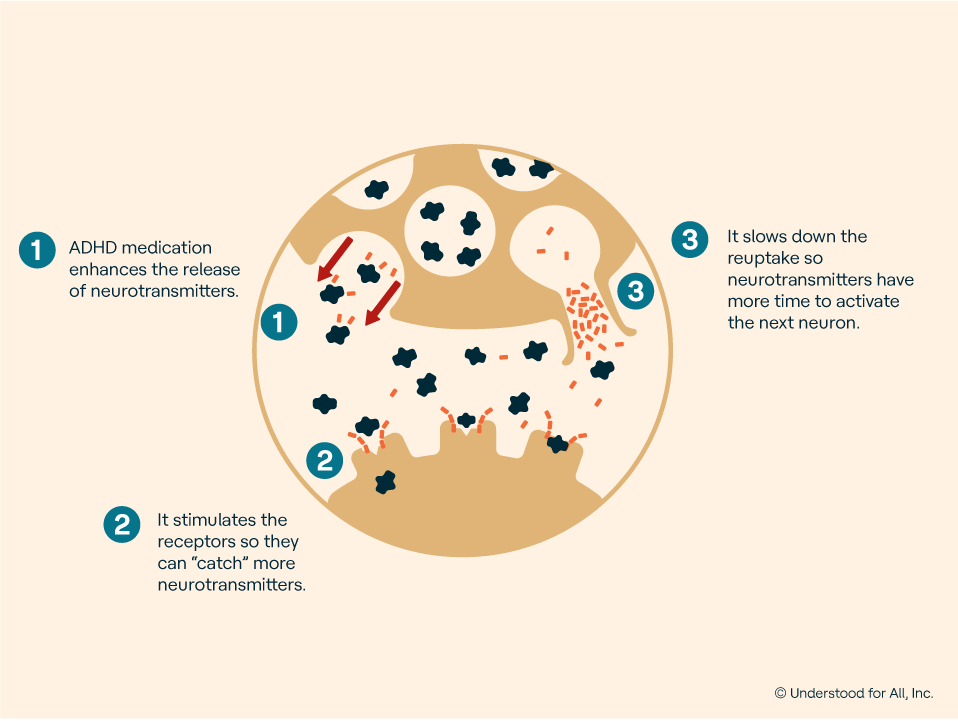Discovering Effective ADHD Treatment Alternatives for All Ages
The complexities of Attention deficit disorder (ADHD) present distinct obstacles across different age teams, necessitating a detailed exploration of reliable treatment choices. A combination of behavior therapies, pharmacological interventions, and way of living adjustments has actually shown pledge in dealing with the varied requirements of individuals with ADHD. Nevertheless, the effectiveness of these methods can vary substantially based upon personal situations, raising vital inquiries concerning customized approaches. As we check out the range of therapy modalities offered, it ends up being necessary to consider not just their instant effects but also their long-lasting implications for individuals and families.
Understanding ADHD and Its Effect
Attention-Deficit/Hyperactivity Disorder (ADHD) is a neurodevelopmental condition defined by relentless patterns of inattention, hyperactivity, and impulsivity that can considerably impact various elements of a person's life. It typically materializes in childhood, although signs and symptoms can linger into adulthood. The core symptoms of ADHD can interfere with academic performance, hinder social communications, and complicate occupational endeavors.
Individuals with ADHD typically deal with preserving focus on tasks, arranging tasks, and following up on guidelines, which can result in academic underachievement (Depression Treatment). In social contexts, impulsivity might result in problems in forming and maintaining partnerships, as individuals might disrupt conversations or make rash decisions without thinking about repercussions
In addition, ADHD can co-occur with other psychological health and wellness problems, such as anxiety and clinical depression, further making complex diagnosis and treatment. The irregularity in symptom discussion implies that ADHD can affect people differently, requiring a customized approach to monitoring. Recognizing ADHD's diverse impact is critical for creating efficient strategies that support people in navigating everyday challenges and attaining their capacity. Comprehensive recognition of ADHD's nature and effects prepares for discovering ideal treatment options customized to every person's demands.
Behavioral Therapies for ADHD
Countless behavior modifications have been established to successfully deal with the obstacles linked with ADHD, concentrating on customizing certain habits and promoting vital abilities. Amongst one of the most identified strategies are cognitive-behavioral treatment (CBT), parent training, and social skills training.
CBT assists individuals recognize and change negative idea patterns and actions, advertising an extra positive overview and enhanced self-regulation. This therapy frequently consists of useful strategies for handling impulsivity and boosting organization. Parent training programs empower caretakers by equipping them with techniques to reinforce positive actions and established constant borders, which can be specifically valuable for children with ADHD.
Social skills training is one more crucial component, teaching people with ADHD how to communicate successfully with peers - Depression Treatment. This strategy often entails role-playing and feedback to enhance communication, cooperation, and problem resolution skills
Integrating these behavior therapies into an extensive treatment plan can significantly improve working and lifestyle for people with ADHD. Inevitably, the performance of these treatments depends upon tailored approaches that consider the unique demands of each individual, consequently cultivating durability and adaptability in day-to-day live.
Drug Options Available
For many individuals with ADHD, medication can play a considerable duty in managing symptoms and improving overall performance. The two primary classifications of drugs recommended for ADHD are stimulants and non-stimulants.
Stimulants, such as methylphenidate and amphetamine-based medicines, are the most generally used therapies. These medicines function by raising the levels of natural chemicals, specifically dopamine and norepinephrine, in Get the facts the brain, which aids boost focus and lower impulsivity and attention deficit disorder. They frequently yield fast outcomes, making them a preferred alternative for many clients.

It is essential for medical care service providers to carry out a comprehensive assessment to identify the most ideal drug based upon individual needs, medical history, and prospective negative effects. Normal follow-up and monitoring are additionally vital to guarantee the effectiveness of the selected therapy and to make any kind of necessary adjustments.
Lifestyle Modifications to Consider
Taking care of ADHD properly extends past drug, as way of life changes can significantly boost total wellness and signs and symptom control. Incorporating structured routines is vital; regular timetables aid people with ADHD handle their time efficiently and reduce feelings of overwhelm.
Regular physical task is another vital component. Workout not just assists to enhance concentration yet additionally improves state of mind and minimizes anxiety degrees. Activities such as yoga or team sports can be particularly valuable, promoting both fitness and social communication.
Nourishment additionally plays a critical duty. Depression Treatment. A well balanced diet regimen rich in omega-3 fats, entire grains, and lean healthy proteins can add to boosted focus and cognitive feature. Restricting sugar and processed foods is advisable, as these can exacerbate hyperactivity and impulsivity
Rest hygiene is essential for managing ADHD signs and symptoms. Establishing a regular sleep timetable and producing a relaxing setting can improve rest quality, bring about far better focus and emotional policy.
Alternate and All Natural Techniques
Different and all natural methods to ADHD treatment provide a diverse range of options that match typical methods. These strategies typically focus on way of life adjustments, nutritional interventions, and therapeutic methods that intend to boost overall wellness while addressing ADHD signs.

Mindfulness and behavior modifications are also getting traction as alternative treatments. Practices such as yoga exercise, meditation, and cognitive-behavioral treatment can cultivate self-regulation and improve focus. These approaches sustain psychological durability, which is particularly advantageous his response for people with ADHD.
Herbal supplements, such as ginkgo biloba and ginseng, are sometimes checked out; nonetheless, it is essential to seek advice from health care experts prior to incorporating these into treatment plans. While alternative and Visit This Link alternative approaches can offer important assistance, they need to ideally be utilized in combination with evidence-based treatments to accomplish optimal outcomes for taking care of ADHD across all ages.
Conclusion
In recap, reliable ADHD therapy demands an extensive method that includes behavioral therapies, medication, lifestyle adjustments, and all natural approaches. This complex technique emphasizes the relevance of individualized treatment in attending to the diverse demands of individuals with ADHD throughout all age groups.